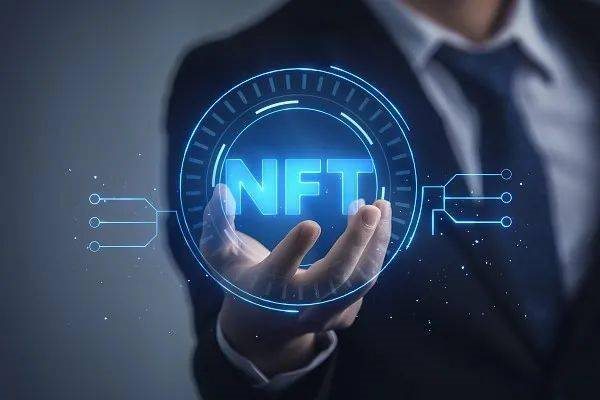时间:2024-02-20|浏览:369
2024 年将成为以太坊区块链历史上最重要的一年。
除了美国可能批准以太坊 (ETH) 现货交易所交易基金 (ETF) 之外,今年还将标志着该网络自 2022 年合并以来的第一个牛市周期。
此更新使 ETH 在网络使用率较高期间出现通货紧缩。
相关:以太坊 ETF 的推出比您预期的要早
自合并以来,0.2% 的以太币供应已被销毁,随着网络使用量的增加,这个数字将在未来几个月进一步增加。
自合并以来的 ETH 供应。资料来源:Ultra Sound Money
此外,下一次以太坊网络更新——以太坊改进提案 4844——计划于今年进行。它的目标是使围绕以太坊构建的整个第 2 层 (L2s) 区块链生态系统的成本降低 10 倍。
这将是这个周期的主要转折点,它将带领以太坊和 Layer 2 进入历史上最大的一年。
这个想法很简单:如果没有 L2,以太坊就无法扩展。如果没有子链和专业的业务开发团队,L2 就无法以所需的速度增长。
要理解这一点,值得退一步问: 什么是以太坊?
与比特币(BTC)不同,以太币不仅仅是一种资产,其内在价值仅与区块链的功能相关。
以太坊更符合共享和可编程数据库或去中心化应用程序(DApp)开发平台的理念。因此,要使其有价值,就必须在其上存在有价值的应用。
其中一些应用程序已经存在,并且是从 Web3 原生出现的,但绝大多数将来自传统公司调整其系统并与区块链集成。
这是以前从未实现过的。目前链上存在的主要非原生 Web3 杀手级应用程序有哪些?在上一次牛市之后,有多少公司认真维护了他们的链上应用程序?
他们缺席的主要原因是很少有人能够“用区块链思考”,能够看到问题并将区块链视为解决方案,或者能够充分理解代币以思考与之相关的商业机会。
在过去的周期中,并不能始终如一地提供指导这些参与者的帮助,因为——由于区块链的广泛性和不可知性——大多数参与者都是非常通才的。
结果,一些操作不可行,因为它们与 meme 币和不可替代代币(NFT)繁荣争夺区块空间。
公司渴望尝试区块链,但不知道如何进行,并且需要区块链本身或其他 Web3 公司的业务开发团队的指导。
Business development segmentation is usually done by region, resulting in these teams having to cater to 20 different sectors, each with distinct needs and complex applications. The outcome was superficial guidance that ultimately doomed these projects over time.
But in 2024, the game will change.
With more leadership positions at large companies — with a much more mature mindset about how to build on-chain — the blockchain ecosystem is going through a period of specialization.
Related: 3 bull market narratives for 2024 that you haven’t heard about yet
Today, it is evident that the largest L2 blockchains are segmenting into subchains with specific configurations and specialized teams and structures for onboarding specific niches.
Using Polygon as an example, instead of having just one generalist blockchain for all applications and a regional business development team, Polygon is already diversifying into several subchains dedicated to specific use cases.
Until now, blockchain scaling had 2 paradigms: Monolithic & ModularIntroducing the next one: AggregationA novel solution combining the benefits of monolithic & modular designs by unifying liquidity via safe, near-instant atomic cross-chain txs using ZK proofs.Feb Mainnet … pic.twitter.com/mE0qssoWyJ
— Polygon | Aggregated (@0xPolygon) January 24, 2024
How is this happening? Polygon is providing the market with its Chain Development Kit (CDK) — on which subchains are built — and all liquidity is connected by an aggregation layer.
In recent weeks, Polygon has announced:
B2, a CDK chain focused on building rollups for Bitcoin
OEV Network, a CDK chain aimed at capturing all oracle extractable value (OEV)
Hypr, a CDK chain with a focus on gaming
Libre, a CDK chain dedicated to the issuance of tokenized assets for institutions
FireDrops, a CDK chain designed for loyalty actions for FlipKart, India’s largest e-commerce.
And the same path is being followed by all the other major L2 blockchains. What is referred to as CDK by Polygon is called “Op-Stack” by Optimism, for example.
Blockchains based on OP Stack. Source: CryptoRank
The paradigm shift is brutal, and 2024 promises to be a major battle, as a lot of specialized subchains and business development teams from each of these major L2 blockchains will be competing in the same segments.
With that said, 2024 has everything to become the year when the killer apps of Web2 are finally seen emerging in Web3.
The year will mark the beginning of the retention cycle, where companies and users will start and continue to incorporate blockchain into their daily lives.
It’ll be the year of the L2 blockchains and, consequently, the biggest year for the Ethereum network.
Lugui Tillier is the chief commercial officer of Lumx, a Web3 studio in Rio de Janeiro that counts BTG Pactual Bank, the largest investment bank in Latin America, among its investors.
本文仅供一般参考之用,无意也不应被视为法律或投资建议。这里表达的观点、想法和意见仅代表作者个人观点,并不一定反映或代表Cointelegraph的观点和意见。

![[扎因汗]2024 年将是 Ripple 变革的一年 – Pr](/img/20231221/3004659-1.jpg)

![[热币挖掘机]2024 年 2 月 3 个最重要的加密货币预测](/img/20240204/3414996-1.jpg)




![[加密新闻360]比特币是最重要的货币进步](/img/20240220/3549313-1.jpg)
